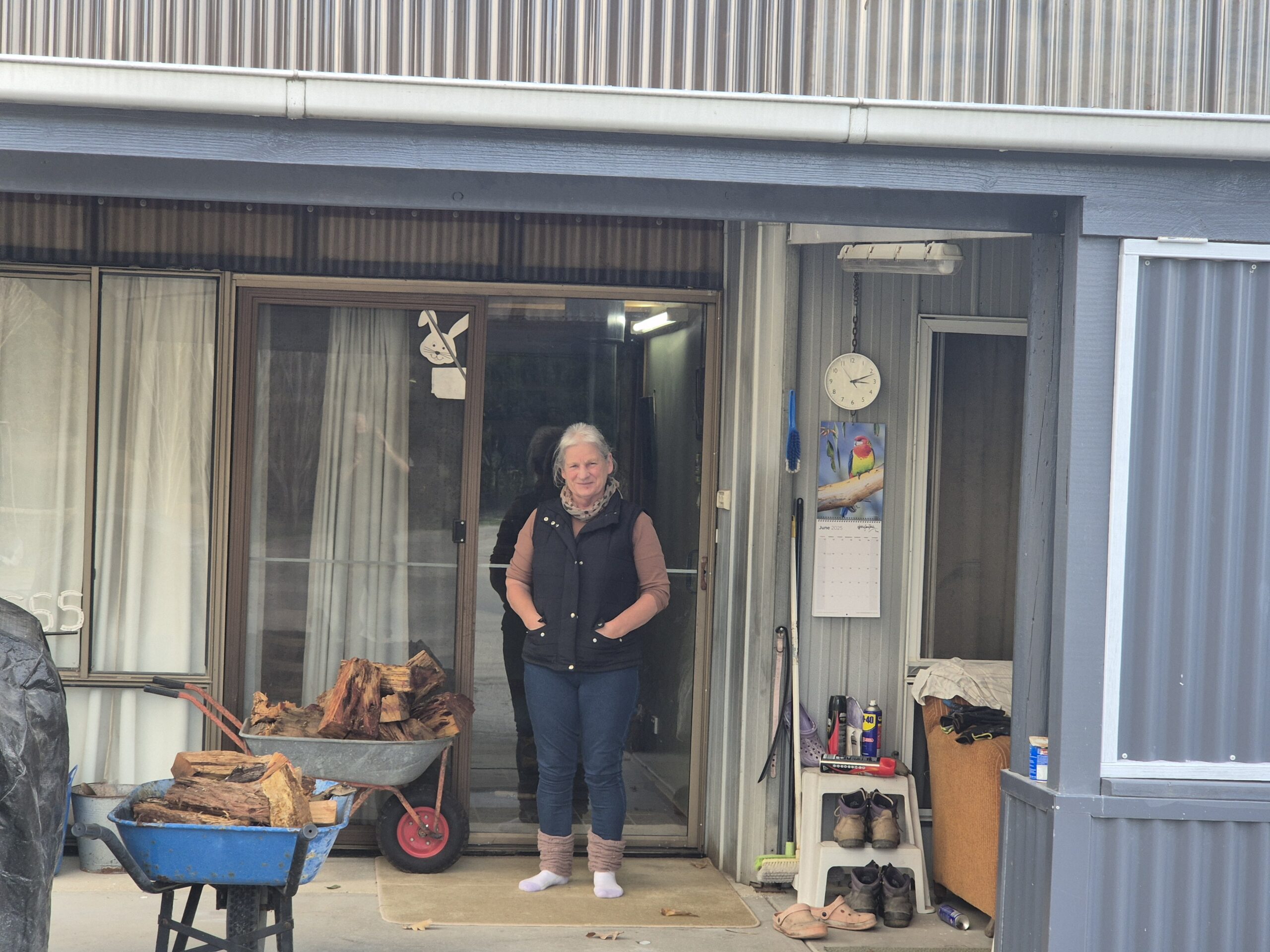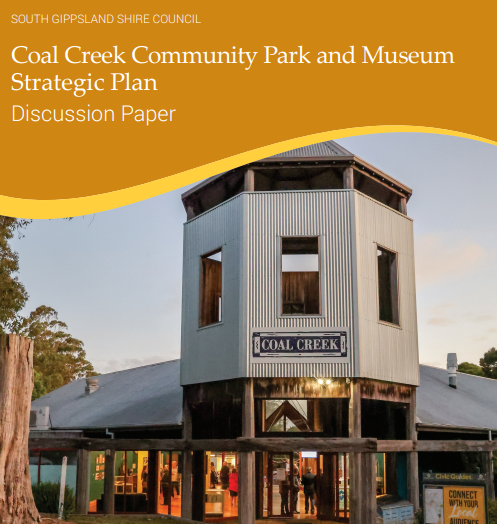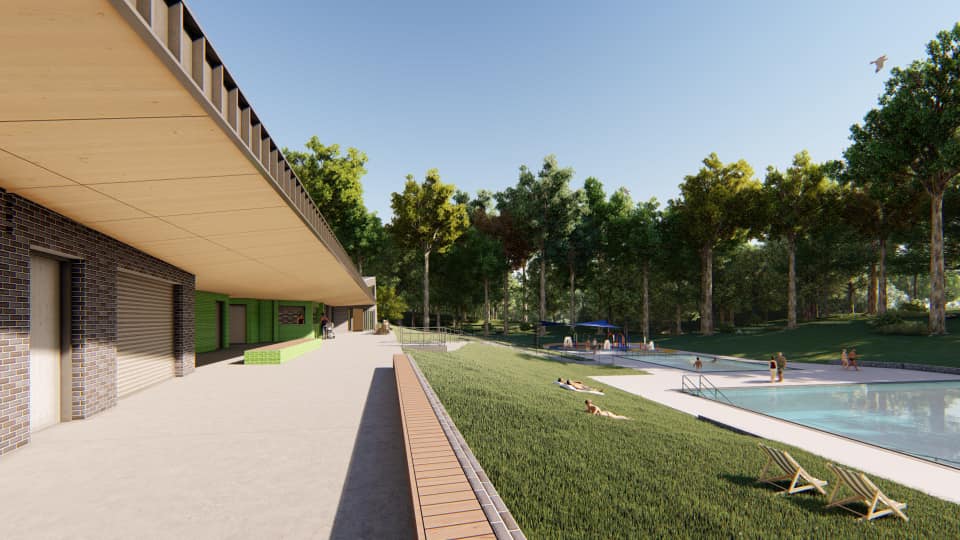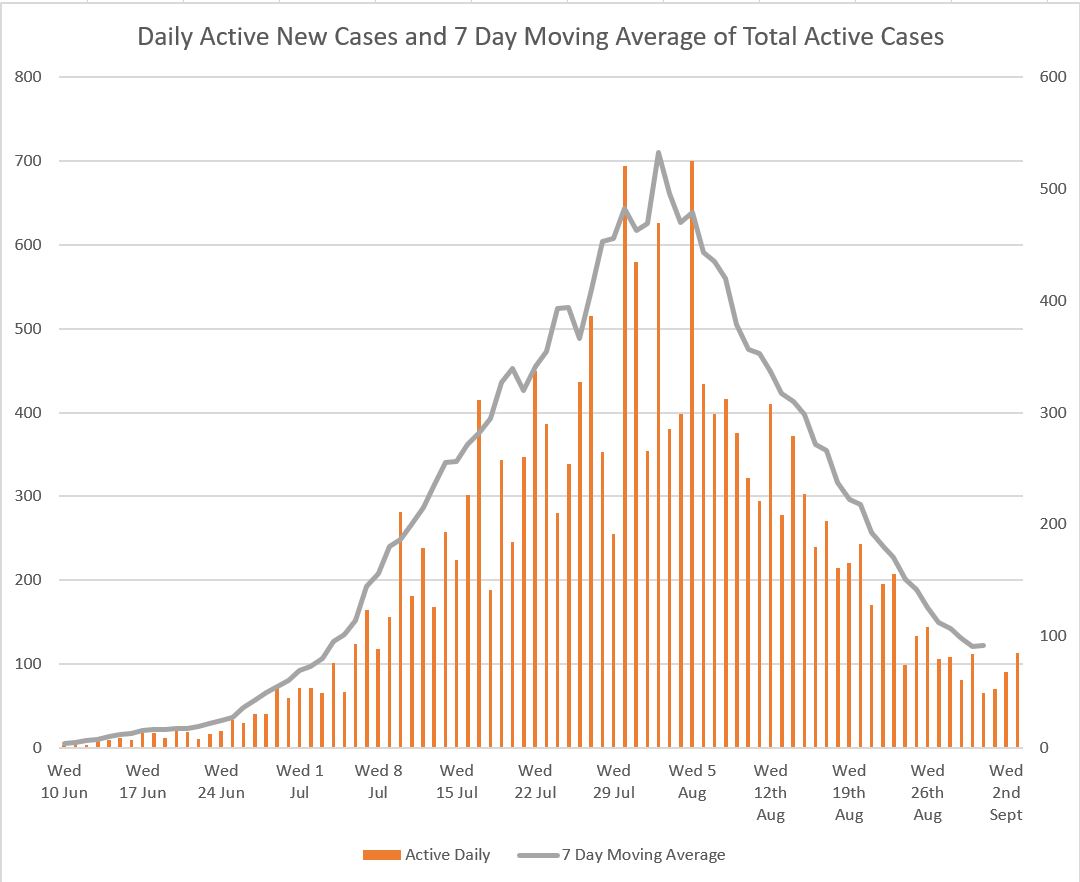Council taking 75 year old to Court to evict her from home
It started 30 years ago around 1994 when Aileen Hughes wished to build a living quarters in her large farm shed. As the property was allowed to have a dwelling under the planning scheme, she asked Council what she needed to do to build the living area. Ailleen claims Council said she could construct the living unit, and works were conducted by local builders and septic system was installed and serviced ever since.
Aileen said: “I was told, if I built over 100mtr off Rd, then I did not require a permit, standard for that time. Near or about 12mnths later, I again approached shire to ascertain if I could build a self-contained/granny flat area inside the shed. No probs so long as qualified trades ppl, all septic, plumbing, electrical etc were adhered to.”
Apparently Council records were not updated at the time to reflect these changes and Council continued charging Aileen rates for the property categorised at Vacant Rural. Effectively she was paying the same rates as if it was categorised as Residential with a dwelling so that was not a problem as such.
Around 2015 Council revamped the rates categories and as an encouragement for owners of vacant residential land, Council doubled the rates payable on such properties. Aileen did not realise her rates doubled for that reason thinking she was in a dwelling not on vacant land. The rates notice whilst correctly showing vacant land also might have confused by showing it was residential classification.
Council sent out an officer around this time and when the officer left, she said that Council would be in touch. The Council officer should have been aware at that time that Aileen was paying double rates as her property was classified as vacant residential land and not residential.
Aileen continued paying double rates on her property.
After 8 years of silence, Council again contacted Aileen and arranged a visit around Sept 2023 in which they conducted an investigation of the property. They took pictures, asked lots of questions and caused Aileen lots of stress.
A report was then produced at Council and Aileen was sent a letter in Oct 2023 informing her that she was living in a farm shed conversion without a building permit and she needed to respond to the latter within 30 days as to why living in this building should not be prohibited.
The reasons stated as to why this notice was sent to Eileen was due to Building works carried out without a building permit and building works carried out that contravened the building regulations. These contraventions were listed as performance requirements for the building such as structural stability, rainwater management, weatherproofing, rising damp, wet areas like bathrooms, room heights, lighting and ventilation. It was not claimed that there were problems with these matters, just that Eileen needed to satisfy Council that these matters were not occurring.
Aileen responded, but not to the satisfaction of the officers and so correspondence was despatched by Council repeating the request for Aileen to respond to various matters and this continued until early 2024 when Council sought legal advice from Council’s lawyers.
After receiving the legal advice Council cancelled the report from Oct 2023 and issued a new report. Council then sent a new letter demanding Aileen respond.
This new amended report now gave the reason why the notice was served as being due to the dwelling being a danger to life, safety or health of people inside it. A list of unproven reasons why the building may be unsuitable for habitation were given which roughly matched those given in the initial report. That being performance requirements for the building such as structural stability, rainwater management, weatherproofing, rising damp, wet areas like bathrooms, room heights, lighting and ventilation.
An additional reason was given as follows: It has not been verified that contaminated air is being disposed of in a manner which does not unduly create a nuisance or hazard to people in the habitable part of the building.
A freedom of information request was then submitted to Council and a 4cm thick pile of documents eventuated. The interesting thing about the report from Oct 2023 was that most of the pages were blacked out with Council claiming the details were part of a working document. A standard ruse by Council to keep hidden, details that might be embarrassing to them.
The Oct 2023 report shown here page 1 was followed by mostly blacked out pages hiding the report details. Photographs were shown of the different areas, but no problems appeared evident in any of the photos so no evidence of any of the concerns as raised in the notice from Council appeared evident.
Later in the pile of released FOI documents was the same report but upon turning the page over, page 2 was no longer blacked out except for one clause. On this page was stated the following as seen in the picture.
The section titled Conclusion said:
4.1 The only immediate risks identified by shed being used for occupation is the absence of smoke alarms. The owner was verbally directed at the inspection to immediately install a smoke alarm above the entrance to the bedroom to mitigate fire risks.
The page also stated in 3.1 that there is a record for a septic permit and a service history.
Section 2.5 stated that “Whilst it had been on site for approximately 30 years, Council’s records did not reveal a building permit for the shed.”
Section 2.4 stated that “All building works related to the habitation of the building are independent of the shed structure.”
Section 4.1 in the conclusions section was blacked out. The reason used being working documents.
After 8 years paying double rates it is estimated that Council collected around $10,000 more from Aileen than she should have paid if the rates notice had correctly indicated a residential dwelling and not vacant land. It should also be noted that Septic permits can not be approved on vacant land and at the time of the application for the septic system Council would have known of the dwelling.
Aileen is scheduled to attend Court July 10th, 2025. Let’s hope the Courts asks Council to amend her rates and give her a refund.
Maybe also allow her to remain in her home.














You must be logged in to post a comment.